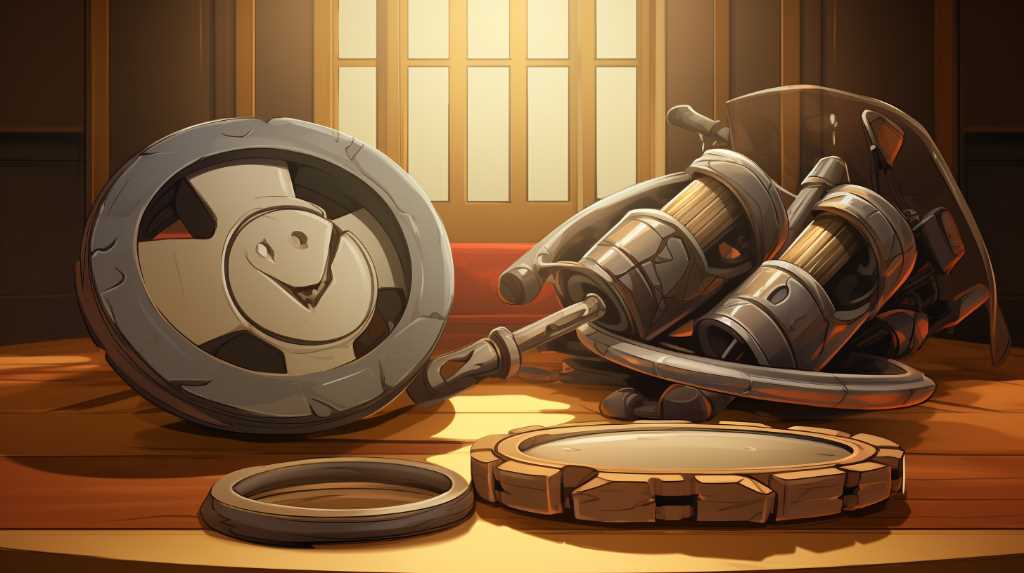
If your motorcycle accident claim is going to arbitration, it means that you and the other party have decided, or must, sort out your disagreement with the help of a neutral person, called an arbitrator, instead of going to court.
This private process is legally binding, which means you usually can’t appeal the decision. People often choose arbitration because it’s faster, private, and arbitrators may know more about certain tricky issues.
Before arbitration starts, both sides collect evidence and get ready to present their case, just like they would for a court trial, but it’s all done in a simpler and more casual way.
It’s important to understand how arbitration works if you’re trying to settle a dispute from a motorcycle accident.
Understanding Arbitration Basics
Arbitration is a way to solve disputes without going to court. In this process, a neutral person called an arbiter decides the outcome of a case, like one involving a motorcycle accident. People might agree to use arbitration beforehand through a clause in an insurance policy or decide to use it after an accident has happened.
The arbiter looks at the evidence, listens to what people have to say, and decides who is right. Arbitration is private, often quicker, and less formal than a courtroom trial, but it still requires a good understanding of the law. Usually, what the arbiter decides is final and can’t be easily challenged in court, which means it’s very important to present your case well.
Arbitration gives you a way to resolve your dispute while offering some flexibility within a legal setting.
The Arbitration Process Explained
In simple terms, the arbitration process is a way to settle motorcycle accident claims without going to court. It’s a step-by-step method that aims to resolve things fairly and quickly.
First, everyone involved agrees on an arbitrator, who is a neutral person skilled in personal injury or insurance law. Before the arbitration starts, the person making the claim and the person responding collect all their proof, like details of the accident, medical information, and what witnesses say.
When the arbitration begins, each side shares their story, arguments, and the evidence they’ve gathered. It’s not as strict as a courtroom trial and doesn’t have to follow all the legal rules. Once the arbitrator has heard everything, they make a decision. This decision can either be final, or it can be something that can be challenged, based on what was agreed upon beforehand.
Usually, this way of solving the dispute is quicker and costs less money than fighting it out in court. It gives everyone a clear answer so they can get past the issue without waiting for a trial to end.
Benefits of Choosing Arbitration
Choosing arbitration can help you solve motorcycle accident claims quickly and without spending too much. It’s faster than waiting for a trial in court, which can take a long time because there are so many cases for the court to handle.
When a motorcycle accident is complicated and it’s hard to figure out who is at fault or how much money should be paid, arbitration is really helpful. That’s because the arbitrator knows a lot about personal injury law and can make smart decisions about your case.
Plus, once the arbitrator decides, that’s usually the end of it. There’s not much chance to keep arguing in court, so everyone involved knows what to expect and can get on with their lives.
Potential Drawbacks to Consider
Although arbitration can be beneficial, people need to carefully think about its downsides.
One major issue is that if you don’t agree with the arbitrator’s decision, it’s tough to challenge it. You can usually only appeal for very serious reasons, like if there was fraud or obvious unfairness. This means you might be stuck with a decision that’s wrong, with no way to fix it.
Also, because arbitration is more informal than court, the rules aren’t always followed as strictly. This could be bad for someone who needs to make a complex legal argument.
It’s important to balance these risks against the faster and private process that arbitration offers.
Preparing for Your Arbitration Session
Understanding your arbitrator’s background and expertise is essential as you prepare for your motorcycle accident claim arbitration session. Familiarity with the arbitrator’s previous rulings and areas of specialization can inform your approach to presenting evidence and legal arguments. Thorough preparation entails assembling all relevant documentation, such as medical records, accident reports, and witness statements.
Strategically, it is crucial to distill complex information into clear, compelling narratives that resonate with the arbitrator’s analytical framework. Develop a concise opening statement that encapsulates the core of your claim, and anticipate potential counterarguments from the opposing party. Practice articulating your points with precision, ensuring that your legal counsel is adept at objecting to inadmissible evidence and adeptly navigating the rules of the arbitration forum.
Conclusion
When you choose arbitration for a motorcycle accident claim, it’s basically a simpler way than going to court. It’s usually faster, more relaxed, and can cost less money.
But it’s important to remember that you won’t be able to find out as much information beforehand and it’s harder to appeal the decision. So, it’s really important to be well-prepared. You need to know how arbitration works and have all your important evidence ready.
Before you decide to go with arbitration, think carefully about how it’s different from court.